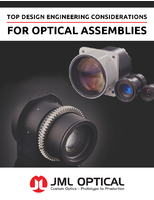ANSI holds2008 Open Forum for Standards Developers.
Press Release Summary:
At ANSI's 2008 Open Forum for Standards Developers, on June 24-25 in Washington D.C., nearly 99 participants gathered, including 54 that were attending for the first time. Addressing the future of standardization in the U.S. and abroad, it included a panel called Coop-etition, which discussed the need for interoperability of healthcare standards. Several other panels took place with featured speakers that included Mary Saunders of NIST, James H. Turner, and Robert Noth of ANSI.
Original Press Release:
Standards Community Convenes at 2008 Open Forum for Standards Developers
Nearly ninety participants gathered together this week for the 2008 Open Forum for Standards Developers. The American National Standards Institute (ANSI) hosted the event on June 24-25 in Washington, DC.
The second-largest Open Forum to date, this year's event was attended by representatives from a diverse range of standards-setting organizations, including fifty-four participants who were attending an Open Forum for the first time.
Addressing the future of standardization in the U.S. and abroad, the Open Forum provided an opportunity for all voices from the standards community to be heard. Representatives from standards developing organizations (SDOs) and standards setting organizations (SSOs) joined industry stakeholders and policy makers at the conference - the fourth of its kind - for an open exchange of ideas and opinions.
"SDOs and consortia travel along similar paths. Quite often, there are more commonalities than differences - and lessons learned by one can benefit others," said ANSI president and CEO S. Joe Bhatia. "By working together, we make a collective commitment to support stakeholders around the globe that are relying upon the standards that U.S.-based standard-setting bodies produce."
Panel topics covered at the event were chosen in accordance with the direction provided by participant survey responses earlier this year.]
The Forum's first panel, Coop-etition, started strong by asserting that collaboration between and among standards-setting organizations has never been more important. Citing the specific example of medication errors that cost lives every day, the interoperability of healthcare standards was discussed as a particular area of needed focus. Panelists also agreed that the standardization environment has changed; work no longer stops when a document is published, and many traditional SDOs are working to re-examine and diversify their activities, services, and offerings.
The second panel focused on Emerging Technologies. Tools like social networking, web mash-ups, and interactive content hold great opportunity for traditional SDOs and consortia alike to increase efficiency and deliver greater value to customers and end users. In terms of building participation, panelists emphasized the importance of minding the generation gap - if younger people are to get involved in the standards community, it is critical to communicate and work in the same way that they do. Moderator George Gulla, ANSI vice president of publications, suggested initiating a series of ANSI-hosted webinars that would provide more information about the latest tools and technologies for standards development and distribution.
Mary Saunders, chief of the standards division for the National Institute of Standards and Technology (NIST), spoke next on the intersection of standards and public policy. Saunders posited that voluntary consensus standards are much more visible now than they were even five years ago, but that many public-sector representatives still have much to learn about the U.S. standards system. Despite the challenges of public policy crossover issues in areas like sustainable agriculture, biotechnology, and social responsibility, Saunders emphasized that voluntary consensus standards developed in the private sector do make a difference, and should be relied upon regularly.
At the conclusion of the Forum's first day, James H. Turner, chief counsel for the U.S. House of Representatives Committee on Science and Technology, discussed the power of the public-private partnership. In his comments, given at the evening's networking reception, Turner cited the success of the National Technology Transfer and Advancement Act (NTTAA) and discussed such recent public-private collaborations as the High Performance Building Council initiative. [see related article]
Turner also reinforced the discussions held during the Emerging Technologies panel, explaining the importance and impact of social networking and related online tools on the marketplace.
The third panel, Emerging Industry Sector Trends, kicked off day two with an exploration of how to support innovation in the standards-setting arena. Panelists agreed that participation can be a challenge, as volunteers from emerging sectors can have a limited understanding of the process and the timelines involved in standardization. This creates the need for continuous stakeholder education, and can also contribute to the larger problem of duplicative activities, as participants sometimes move to create a similar standard through another forum.
A Bottom Line Focus: Faster, Cheaper, Better was the topic of the next panel, which centered on how to streamline and improve standardization activities and services. Effective project management tools were continuously cited as the best way to reduce overall time to market and stay within budget. Panelists also agreed that any new tools for activities like voting and commenting should focus on ease of use for volunteer participants.
The final speaker, Geoffrey Oliver, partner at Jones Day, led attendees in a lively discussion of legal issues facing SSOs. Oliver addressed patent issues in the recent N-Data case, and identified the Rambus anti-trust case as one of the most significant standards-related decisions in the past twenty years.
During a final wrap-up session, a facilitated open dialogue was led by Robert Noth, chairman of the ANSI Board of Directors and Manager of Engineering Standards at Deere & Company. Noth emphasized the need to attract a younger demographic to the standards community, and discussed ways for ANSI to facilitate electronic meetings that could save time and money for everyone involved.
An ANSI-conducted benchmarking activity was suggested to help members examine their needs for e-tools, remote meeting technologies, live editing/voting/commenting, and more. Bhatia informed attendees that this issue will be addressed at the next meetings of the ANSI Organizational Member Forum and the Company Member Forum. The Institute will follow up with an email to all attendees to collect the names of those interested in participating in the benchmarking activity.
"Overall, this has been one of the most informative, entertaining, and interactive Open Forums that I've ever attended," concluded Noth. "I'm pleased to see that so many new faces joined us to share information and discuss the future of standardization."




